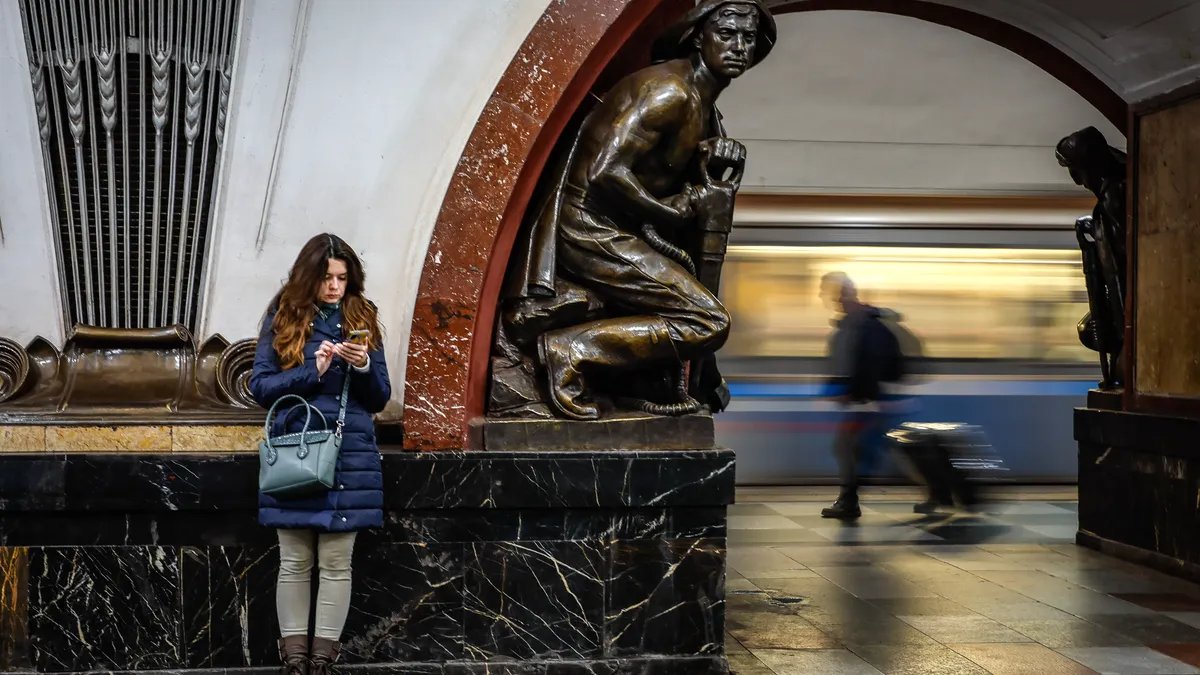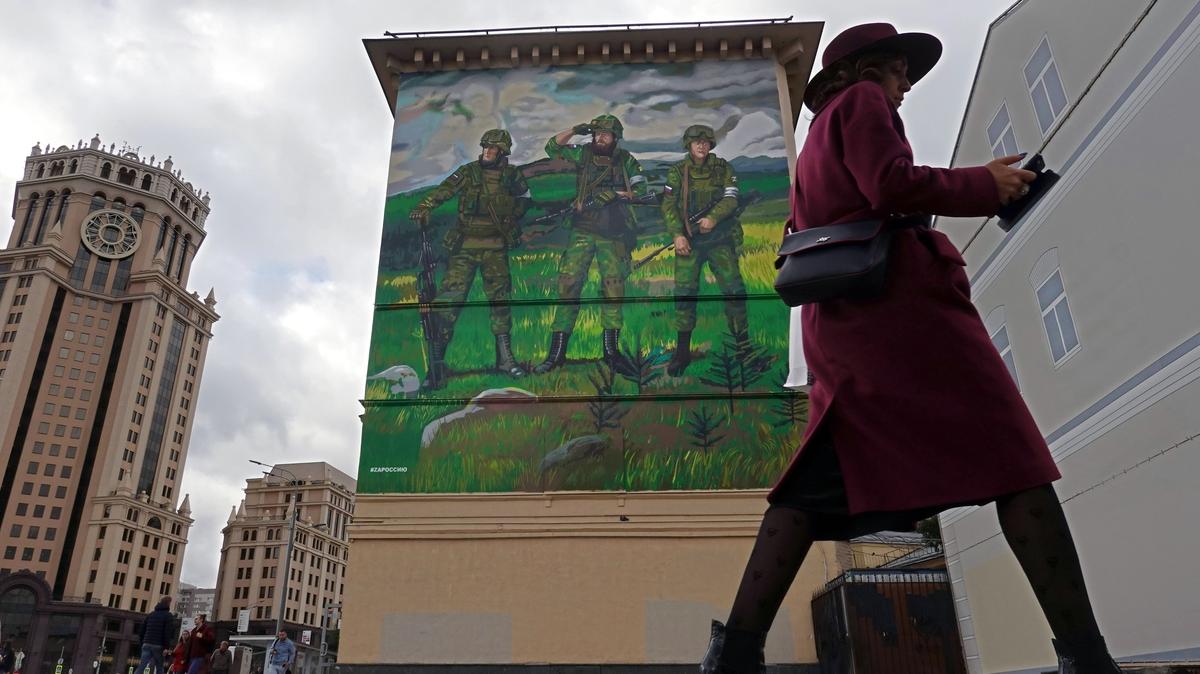While Instagram and Facebook were blocked in Russia soon after the full-scale invasion of Ukraine, many content creators continued to post to both platforms by using a VPN, allowing them to benefit from lucrative paid partnerships. That came to an end on Monday when Vladimir Putin signed a new law prohibiting these mutually beneficial arrangements.
Under the new law, any Russian entering a paid partnership or advertising on Instagram and Facebook will be subject to fines — starting at 2,500 rubles (€26) for individuals and rising to 500,000 rubles (€5,300) for companies.
State Duma Speaker Vyacheslav Volodin said in March that the bill’s aim was to limit foreign companies earning income from Russia, despite the fact that Instagram and Facebook’s parent company Meta banned all ad campaigns in Russia in 2022. However, influencers can still create paid content and have paid partnerships with Russian brands and companies without paying Meta directly.
The law also applies to ads on other blocked websites and social media sites such as YouTube and X. “With this decision, we are protecting the interests of our country and citizens,” Volodin said.
Content creator Valentina Romanova*, who currently has more than 30,000 subscribers, made her start in the sector by posting funny videos on TikTok during the pandemic and since 2023 has been making viral makeup content on TikTok and Instagram, as followers and advertisers flocked to her social media for her signature style of content.
Despite Instagram being blocked in Russia, Romanova says it remains her main source of income. “I have a Telegram channel, but that is not as popular, so advertisers pay pennies in comparison to Instagram,” she said. She has never run ads on TikTok, which has also been challenging to use since the platform banned new uploads from Russian users following the introduction of wartime censorship in 2022.
Still, she says she hopes to focus on growing her TikTok presence to monetise content, as the platform has not technically been banned in Russia, and her content is far from political.

Daily life in Moscow, October 2024. Photo: EPA-EFE/YURI KOCHETKOV
By contrast, the content posted by Mikhail Kuznetsov* in 2019–2020 was overtly political at a time when there was still a degree of free speech permitted by the authorities, and he covered major stories such as the poisoning of Alexey Navalny, the fraudulent elections to the Moscow City Duma, the 2020 constitutional amendments and opposition rallies.
“I used to openly mention names and events, but now I hint and wink and my audience reads between the lines.”
In 2023, Kuznetsov started posting memes featuring Russian opposition politicians and bloggers. Since then, though he engages in self-censorship for his own safety, Kuznetsov’s audience has grown to around 10,000 people.
“I used to openly mention names and events, but now I hint and wink and my audience reads between the lines,” he says. Kuznetsov knows that his audience understands him well, as they all collectively grieved Navalny’s murder, and protested Vladimir Putin’s re-election by queuing at midday on the last day of the election, in an action organised by Navalny’s supporters.
According to Kuznetsov, his blog is not growing much these days as political memes have “outlived their usefulness”, and he has become less interested in creating political content due to what he describes as the excessive infighting within the Russian opposition.
While Kuznetsov rarely makes paid content himself, he says he had no desire to forgo them completely, and considers the new law to be harmful, “especially for small content creators”. When asked about alternative social media platforms that the Russian authorities are attempting to drive users to such as VK, Kuznetsov says they simply can’t offer the same level of engagement as their global equivalents.
Angelina Soboleva*, who has more than 100,000 subscribers, started posting cooking recipes on Instagram in 2019. She initially posted every day and her page grew “quickly and intensely, with almost no investment”. As Instagram evolved, content creation became Soboleva’s main source of income. She also began to host cooking classes as her blog grew.

A person looks at their phone during the press preview day of the Catalog contemporary art fair in Moscow, Russia, 11 April 2024. Photo: EPA-EFE/MAXIM SHIPENKOV
As she had already managed to expand her presence across other social media platforms, Soboleva says that the new law prohibiting influencers from making money on Instagram was “not a blow” to her, and that she had in fact been expecting something similar to happen since Instagram was initially banned, adding that she was surprised that the authorities “took so long” to ban paid content on Instagram.
Soboleva now gives lectures in which she shares her professional knowledge and has expanded her sources of revenue so that Instagram brings her no more than 20% of her total income.
“As a rule, the market has learned to adapt to even the most moronic laws, so it’s likely to survive this one too.”
Fines for individual content creators are relatively small, with the authorities reserving the largest fines for companies. Soboleva hopes that these measures will be selective, with “only the most guilty fined” but says that she will not be taking any chances, and plans to observe the ban when it comes into force on 1 September.
Suggesting that the platform’s current traffic would ultimately shift to other platforms such as Telegram, Instagram advertising procurement manager Marina Kovalyova*, said that it was impossible to make accurate predictions until the law is applied in practice.
Kovalyova nevertheless points out the fundamental flaw in the legislation, namely that its entire purported purpose — preventing banned platforms such as Meta from earning advertising revenue from Russia — hasn’t been necessary since 2022, when Instagram was blocked in the country following a request by the Prosecutor General’s Office, making it illegal for Russians to buy targeted advertising on Instagram.
The entire bill could simply be a ruse to bolster the number of people using homegrown social media platform VK, Kovalyova muses, noting that, “As a rule, the market has learned to adapt to even the most moronic laws, so it’s likely to survive this one too.”
*All names have been changed for the safety of contributors.

